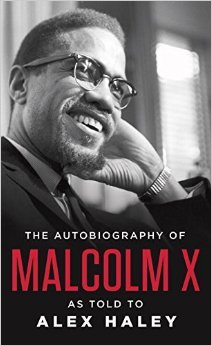TL;DR
In 'The Autobiography of Malcolm X,' Malcolm X chronicles his evolution from a troubled youth to a powerful voice for Black empowerment, detailing his experiences with racism, crime, and his spiritual transformation through Islam.
What is The Autobiography of Malcolm X about
This autobiography, co-authored with Alex Haley, offers an incisive look into the life of Malcolm X, detailing his early years marked by violence and racism, his prison conversion to the Nation of Islam, and his rise as a fiery advocate for Black rights. The narrative not only explores his anger and frustrations but also his subsequent spiritual awakening and embrace of a more inclusive vision of brotherhood. Furthermore, it highlights the complexities of his ideology and the impact of his legacy on civil rights and contemporary society.
The Autobiography of Malcolm X 7 Key Takeaways
Early Life and Trauma
Malcolm X was born Malcolm Little in 1925, facing racism and instability from a young age, including the murder of his father and the mental breakdown of his mother. These events shaped his worldview and experiences with systemic oppression.
Criminal Activities and Imprisonment
In his youth, Malcolm engaged in criminal activities, becoming a drug dealer and pimp. His incarceration for burglary was pivotal, as it led to his discovery of the Nation of Islam and a transformative spiritual awakening.
Conversion to the Nation of Islam
While in prison, Malcolm adopted the teachings of the Nation of Islam, rejecting his last name 'Little' for 'X,' symbolizing his lost heritage. This conversion ignited his passion for activism and advocacy.
Rise as a Civil Rights Leader
After his release, Malcolm X became a prominent figure in the Civil Rights Movement, known for his militant stance on Black empowerment and his critiques of systemic racism in America.
Pilgrimage to Mecca
In 1964, Malcolm made a transformative pilgrimage to Mecca, which expanded his understanding of Islam and led him to embrace a more universal view of brotherhood beyond race.
Shifts in Ideology
Post-Mecca, Malcolm X’s views evolved, advocating for a more inclusive approach to civil rights that embraced unity among all races, while still addressing the injustices faced by African Americans.
Assassination and Legacy
Malcolm X was assassinated in 1965, yet his legacy endures as a powerful symbol of resistance against oppression and a figure of inspiration for future generations in the fight for equality.
Top The Autobiography of Malcolm X Quotes
- "I am not a racist, I am a nationalist. I believe in the rights of my people to be free and independent."
- "As long as you are not free, you cannot be at peace."
- "Education is our passport to the future, for tomorrow belongs to the people who prepare for it today."
Who should read The Autobiography of Malcolm X?
This book is essential for anyone interested in civil rights history, social justice, or personal transformation. Readers will find inspiration in Malcolm X's journey of self-discovery, understanding the importance of resilience and the fight against oppression.
The Autobiography of Malcolm X Best Reviews
- The New York Times hailed it as 'Extraordinary. A brilliant, painful, important book,' emphasizing its significance in American literature and civil rights history.
- The Washington Post described it as 'a raw and enlightening narrative that captures the essence of a man grappling with his identity and purpose in a divided society.'
- Essence Magazine remarked on the book's ability to inspire self-awareness, stating that it is a must-read for understanding the complexities of race relations in America.
People also liked these summaries
The Autobiography of Malcolm X FAQs
What is the central theme of The Autobiography of Malcolm X?
The central theme revolves around Malcolm X's journey of self-discovery, exploring issues of race, identity, and the struggle for Black empowerment in America.
How did Malcolm X's views change over his lifetime?
Malcolm X's views evolved significantly, particularly after his pilgrimage to Mecca, where he embraced a broader perspective on race and unity, moving towards a more inclusive vision of social justice.
Why is The Autobiography of Malcolm X still relevant today?
The autobiography remains relevant as it addresses themes of racism, self-determination, and social justice that continue to resonate in contemporary society, inspiring new generations in the fight for equality.

